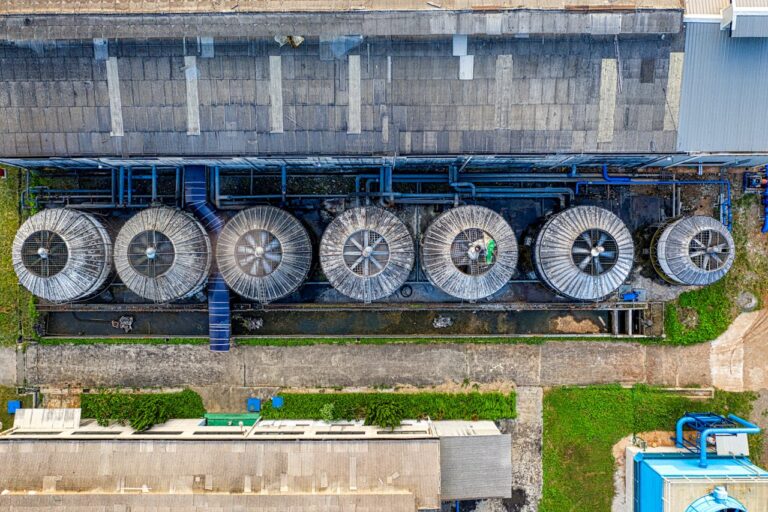The Significance of Proper Functioning of the Septic Tank in Pump Operation
Table Of Contents
Understanding the Significance of Proper Functioning of the Septic Tank in Pump Operation and Septic Tank Pumping
Key Takeaways
- Comprehending the Function of the Wastewater System
- The Importance of Efficient Operation of the Wastewater System in Pump Performance
- The Necessity of Consistent Wastewater System Upkeep
- Frequent Problems Impacting Wastewater System Efficiency
Understanding the Role of the Septic Tank
Septic tanks play a crucial role in managing household wastewater, directly influencing the efficiency of pumps responsible for moving septic tank effluent. Proper functioning of the septic tank is vital; it ensures that solids are effectively broken down and filtered out, allowing only clean effluent to flow towards the drain field. Regular use of septic tank cleaners or additives can enhance this process, promoting healthy bacterial activity that aids in the decomposition of waste. Pumpers rely on the optimal functioning of septic tanks to prevent clogs and maintain system integrity. Recognizing The Significance of Proper Functioning of the Septic Tank in Pump Operation is essential for homeowners to avoid costly repairs and ensure environmental safety.
What is a Septic Tank?
A septic tank is an underground structure designed to treat wastewater from households not connected to a municipal sewer system. It plays a crucial role in the functioning of septic systems, facilitating the breakdown of organic matter by bacteria. The tank collects and holds sewage, allowing solids to settle at the bottom while the liquid effluent flows out into the drainage field. Understanding the significance of proper functioning of the septic tank in pump operation is essential for maintaining system efficiency and preventing costly repairs.
Septic tank additives are often marketed to enhance the breakdown process within the tank, but their effectiveness can vary. Regular pumping of the septic tank is necessary to remove accumulated sludge and septage, ensuring the pipes and pumps remain unobstructed. Neglecting maintenance can lead to system failures and environmental hazards. Alternative septic systems may also provide solutions for challenging terrains, but they require similar attention to ensure optimal performance and longevity.
| Feature | Description |
|---|---|
| Purpose | Treat wastewater from homes not connected to municipal sewer systems |
| Functionality | Holds sewage, allowing solids to settle and liquid effluent to flow out |
| Maintenance | Requires regular pumping to remove sludge and prevent system failure |
| Potential Additives | Marketed to enhance the breakdown process, but effectiveness may vary |
| Alternatives | Alternative septic systems for challenging terrains require similar maintenance |
Components of a Septic System
A septic system typically consists of a septic tank, a drainage field, and an array of pipes connecting various plumbing fixtures in a home. The tank is designed to hold wastewater for a time, allowing solids to settle at the bottom, while lighter materials like grease float to the top. A proper plumbing setup ensures that waste is directed efficiently into the tank, minimizing the risk of clogs. The drainage system then allows the treated effluent to disperse into the surrounding soil, playing a critical role in maintaining local groundwater quality.
Understanding the components of a septic system is essential for recognizing The Significance of Proper Functioning of the Septic Tank in Pump Operation. Over time, pumps must be employed to remove excess sludge from the tank to prevent overflow and subsequent gas buildup. If the system becomes compromised, issues can arise that lead to malfunctioning drains and the potential failure to properly integrate with the sewer system. Ensuring all parts operate effectively is crucial for sustaining a healthy home environment and avoiding costly repairs.
The Significance of Proper Functioning of the Septic Tank in Pump Operation
To ensure the effective performance of a septic tank pump, understanding the significance of proper functioning of the septic tank in pump operation is crucial. A well-maintained septic system facilitates the efficient drainage of wastewater, allowing the drainfield to function optimally without risk of overflow or contamination. Regular pumping by septic tank pumpers helps prevent clogs and leaks that can severely damage the system. The maintenance of the septic tank is vital to guarantee that drains are clear and operational. Without this attention, issues such as reduced pump efficiency and drain field failure may arise, underscoring the significance of proper functioning of the septic tank in pump operation.
How Septic Tanks Impact Pump Efficiency
The efficiency of a septic pump largely hinges on the condition of the septic tank system. A well-maintained septic tank removes waste effectively, allowing the pump to operate at optimal levels. The significance of proper functioning of the septic tank in pump operation cannot be overstated. Over time, neglected septic tank maintenance can lead to blockages or backups that hinder the pump’s performance, ultimately resulting in increased septic pumping costs and the need for septic tank services.
Regular septic tank service is essential for preventing issues that can impact pump efficiency. Septic tank experts recommend a consistent schedule for septic pumping to ensure that the tank does not become overloaded. Signs that your septic tank needs attention may include slow drainage or unusual odors. Ignoring these indicators can lead to significant problems, emphasizing the importance of The Significance of Proper Functioning of the Septic Tank in Pump Operation for the longevity and reliability of the entire septic system.
The Consequences of a Malfunctioning Septic System
A malfunctioning septic system can lead to severe consequences affecting both the environment and the property owner. Septic tank overflows can occur when there is insufficient septic tank storage due to septic tank buildup, leading to the contamination of the surrounding soil and water sources. The significance of proper functioning of the septic tank in pump operation cannot be overstated; issues within the septic plumbing can compromise the efficiency of the pump chambers, ultimately affecting the entire septic system drain.
Neglecting regular maintenance and allowing a malfunctioning septic system to persist can escalate problems. Pumping the septic tank eliminates the excess waste and prevents clogs that can obstruct the flow to the pump chamber. If these problems are left unaddressed, it may result in costly repairs or even complete system failure, causing significant inconvenience for homeowners. Recognizing the implications of a poorly functioning septic system can help emphasize the vital importance of routine inspections and timely interventions.
The Importance of Regular Septic Tank Maintenance
Regular maintenance of septic systems is crucial for ensuring the significance of proper functioning of the septic tank in pump operation. Regular tank pumping not only removes accumulated waste but also maintains the balance of septic fluid, which is vital for optimal septic system functions. By scheduling periodic tank pumping, homeowners can prevent sludge and scum from flowing out of the septic tank, thereby avoiding costly repairs. Engaging a tank pumper application ensures that the septic system works efficiently, prolonging the lifespan of the system and enhancing pump efficiency. Consistent septic system maintenance helps identify potential issues early, allowing for prompt action before they escalate into bigger problems.
- Regular pumping of septic tanks helps prevent clogs and backups.
- Early identification of issues can save homeowners money in the long run.
- Helps maintain proper bacteria levels, essential for breaking down waste.
- Reduces the risk of environmental contamination from sewage leaks.
- Extends the lifespan of the septic system and its components.
- Helps maintain property values by ensuring a functioning waste management system.
- Promotes overall health and safety for residents and the surrounding community.
Scheduled Pumping and Its Benefits
Regular pumping of a septic tank is crucial for ensuring the proper functioning of the septic system. The significance of proper functioning of the septic tank in pump operation cannot be overstated. Over time, solids build up in the tank, leading to the need for pumping. By scheduling routine septic maintenance, homeowners can prevent system failure and avoid costly repairs. Proper tank maintenance through regular pumping protects the efficiency of the septic system while also extending its lifespan.
Homeowners should be aware of the benefits that come with timely septic service. Neglecting the need for pumping can result in clogs and backups, posing serious risks to the household. Regular pumpings not only enhance the performance of the septic system but also reduce the likelihood of costly septic system failures. Engaging in proactive septic services ensures a well-functioning system that safeguards both the home and the environment.
Identifying Signs that Your Septic Tank Needs Attention
Recognizing the signs that your septic tank requires attention is crucial for maintaining the overall health of your septic system. Key indicators can include slow drains, gurgling sounds from the plumbing, or foul odors around the tank area. Addressing these symptoms is essential given the significance of proper functioning of the septic tank in pump operation. If left unchecked, issues can escalate, leading to frequent pumping requirements or even necessitating a complete system overhaul. It is advisable to consult with septic system professionals to determine if timely pumping is needed based on the current tank capacity and observed symptoms.
Regular inspections and monitoring can help identify potential concerns before they develop into significant problems. Signs such as pooling water above the septic lines or backups in the main drainage pipe often reveal a need for immediate attention. Infrequent pumping can cause solids to accumulate, impairing the tank’s efficiency and increasing the likelihood of costly repairs. A proactive approach not only ensures that the septic system operates smoothly but also maintains its longevity, thereby enhancing the overall effectiveness of the pump operation.
Common Issues Affecting Septic Tank Performance
Septic tank performance often suffers from clogs and blockages, which can severely hinder the efficiency of the entire system. The significance of proper functioning of the septic tank in pump operation cannot be overstated, as any disruptions can lead to issues like ruptured tanks and damaged pipes. Regular maintenance with tank cleaners and cleaning services can help prevent these problems. Plumbing experts recommend inspecting perforated pipes for blockages that can contribute to poor drainage. In cases of severe damage, homeowners may need to consider investing in a new tank to ensure continued effectiveness. Keeping the system “septic smart” is essential for maintaining optimal performance and avoiding costly repairs.
Clogs and Blockages: Causes and Solutions
Clogs and blockages pose a significant threat to the proper functioning of a septic tank. A regular tank pumping schedule is essential to maintain an optimal pumping frequency, ensuring that waste does not accumulate beyond the tank’s capacity. The tank size plays a crucial role in determining how often pumping is necessary, as larger tanks may require less frequent servicing. If blockages occur, they can disrupt the flow to the outflow pipe, leading to potential backups and inefficiencies in operation.
Understanding the common causes of clogs can aid in preventing issues. Solid waste, grease, and non-biodegradable materials can accumulate within the underground chamber, resulting in a blockage. Regular maintenance and inspection can help identify these problems early on, allowing for timely interventions. Recognizing the significance of proper functioning of the septic tank in pump operation is vital for ensuring long-term efficiency and preventing costly repairs.
The Role of Bacteria in Septic Tank Functionality
Bacteria play an essential role in ensuring the proper functioning of a septic tank. These microorganisms break down organic waste, transforming it into simpler substances that can safely be absorbed by the soil through subsurface pipes. The efficiency of this process is vital to maintaining the health of the drainlines and preventing issues like drainfield failure. A well-functioning septic tank can significantly reduce the risk of expensive emergency repairs caused by complications such as leaking toilets and blocked chambers.
Understanding the tank size influence on bacterial activity is crucial for optimizing the septic system’s performance. If a tank is undersized, it may struggle to accommodate the volume of waste, leading to an overloaded system and insufficient bacterial action. This can necessitate repairs or even the installation of a new drainfield. Regular assessment and maintenance ensure that necessary repairs are identified early, allowing the system to operate efficiently and effectively. The significance of proper functioning of the septic tank in pump operation cannot be overstated, as it is directly tied to the overall health and longevity of the entire wastewater system.
Conclusion
The significance of proper functioning of the septic tank in pump operation cannot be overstated. A well-maintained septic system ensures efficient waste disposal and minimizes the risk of drains becoming clogged, which can lead to costly repairs. Regular maintenance is key to preventing potential issues that could disrupt the system’s functioning. Neglecting the septic tank may result in major repairs, compromising not only the efficiency of the pump but also the overall health of the property. Ensuring that the septic tank operates correctly is essential for long-term sustainability and performance.
FAQS
How does proper septic tank pumping contribute to the overall effectiveness of how a septic tank works?
Proper septic tank pumping is essential for the effective operation of a septic tank. When a septic tank is pumped regularly, it helps prevent sludge and scum from flowing out of the septic tank, which is crucial for maintaining its function. Without adequate pumping, the tank can accumulate waste, leading to potential failures. An optimal pumping schedule, alongside regular maintenance of the pump, ensures that the septic system operates efficiently and minimizes the need for additional tank cleaning. Therefore, understanding the importance of septic tank pumping is vital for proper waste disposal and to avoid costly repairs.
What role does regular septic pumping play in the prevention of sludge and scum accumulation in a septic tank?
Regular septic pumping is essential for the effective maintenance of a septic system. It helps prevent sludge and scum from flowing out of the septic tank, ensuring that the tank operates efficiently. By adhering to a septic pumping count and recognizing the need for pumping, homeowners can avoid problems that arise from a tank that accumulates waste over time, thereby prolonging the life of their septic system.
Why is regular maintenance essential for the proper functioning of a septic tank, and what happens if it doesn’t get the necessary pumping?
Regular maintenance of your septic tank is essential because it ensures that the tank does not accumulate sludge and scum, which can lead to significant issues. If the tank needs pumping, it can cause sludge and scum to flow out of the septic tank, leading to further complications in the system. Regular pumping the tank helps prevent these problems and maintains the overall efficiency of the septic system.
What are the consequences of neglecting regular maintenance and pumping of a septic tank on its functionality?
Neglecting regular maintenance and pumping the tank helps prevent sludge and scum from flowing out of the septic tank, which can lead to the need for pumping more frequently. If the tank accumulates too much waste, it can cause backups and damage to the entire septic system.
How does regular maintenance influence the need for pumping a septic tank effectively?
Regular maintenance is crucial for ensuring that a septic tank functions properly, as it helps to prevent issues that might arise if the system is not monitored. Without regular maintenance, the need for pumping can increase significantly, leading to potential failures and costly repairs.
How does regular maintenance affect the need for pumping a septic tank?
Regular maintenance is crucial for a septic tank as it significantly influences the need for pumping. Without proper upkeep, the accumulation of waste can lead to increased pressure on the system, necessitating more frequent pumping. Performing regular maintenance helps manage the levels of sludge and scum, reducing the likelihood and urgency of needing pumping and prolonging the lifespan of the septic system.
How can neglecting regular maintenance lead to an increased need for pumping a septic tank?
Neglecting regular maintenance can significantly increase the need for pumping a septic tank. When regular maintenance is overlooked, sludge and scum can build up, reducing the efficiency of the tank. This buildup may require more frequent pumping to restore functionality and prevent potential backups or failures. Therefore, consistent regular maintenance can help minimize the overall need for pumping and ensure the septic system operates smoothly.
What impact does regular maintenance have on the overall need for pumping a septic tank?
Regular maintenance plays a crucial role in determining the need for pumping a septic tank. By ensuring that the system operates efficiently, regular maintenance can help minimize the buildup of solids and other waste, thereby reducing the frequency with which pumping is needed. Neglecting maintenance may lead to quicker accumulation of sludge, which can escalate the need for pumping and result in more significant issues for the septic system.
How can the adherence to regular maintenance practices affect the frequency at which a septic tank requires pumping?
Adhering to regular maintenance practices can significantly reduce the need for pumping a septic tank. When regular maintenance is performed, it helps ensure that the system is working efficiently and can properly handle waste, which minimizes the accumulation of solids. This proactive approach means that homeowners are less likely to face frequent pump requirements, ultimately leading to savings and a well-functioning septic system.
How do the practices involved in regular maintenance influence the frequency and need for pumping a septic tank?
Regular maintenance of a septic tank, including inspection and servicing, can significantly reduce the overall need for pumping. By ensuring proper functionality through routine checks, homeowners can manage sludge and scum levels effectively, minimizing the frequency at which pumping is necessary. This proactive approach not only optimizes pump performance but also prolongs the lifespan of the septic system.







